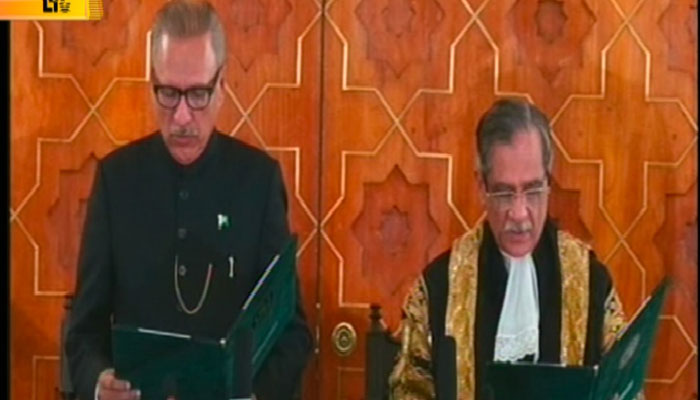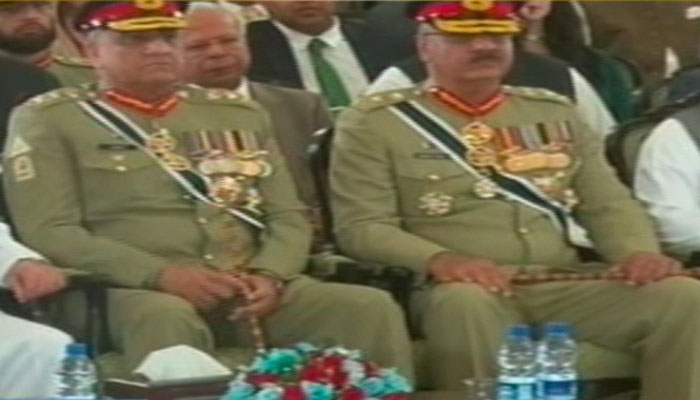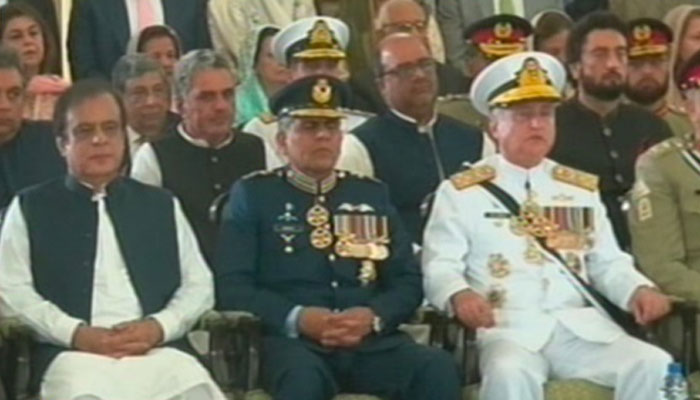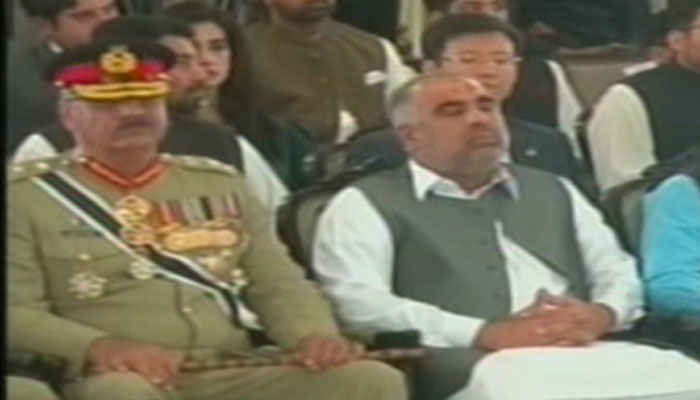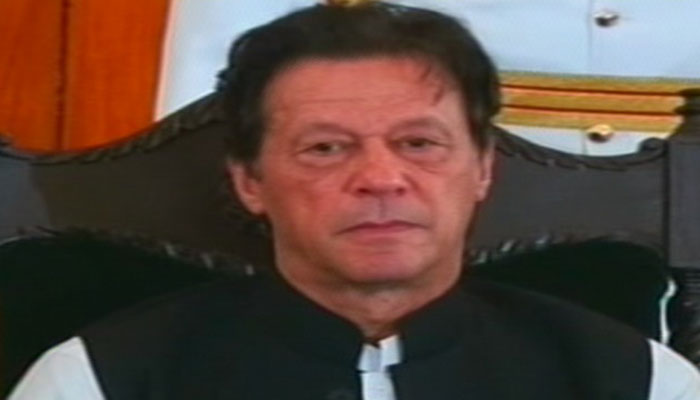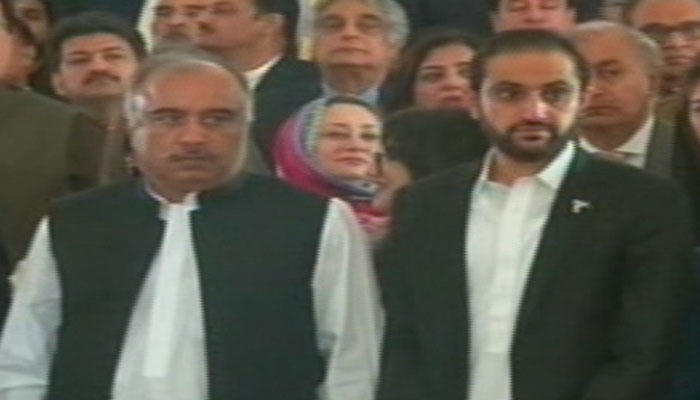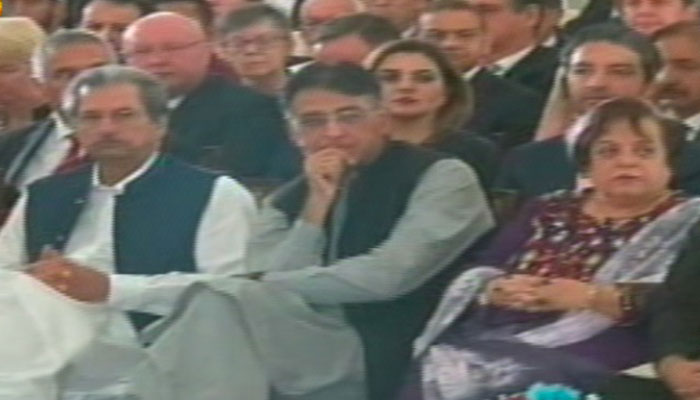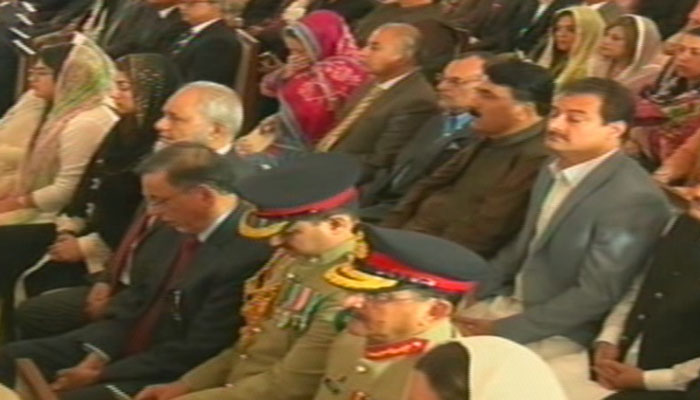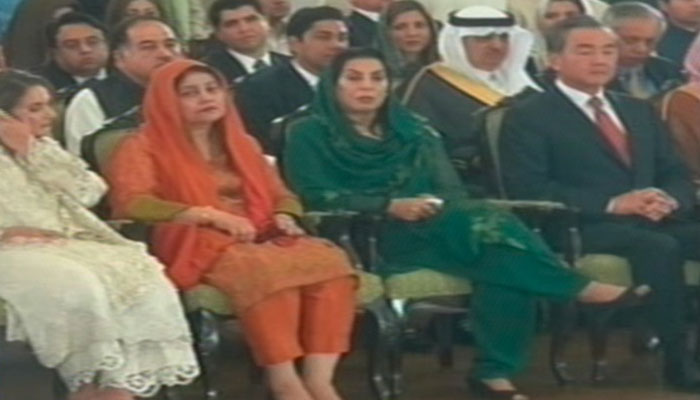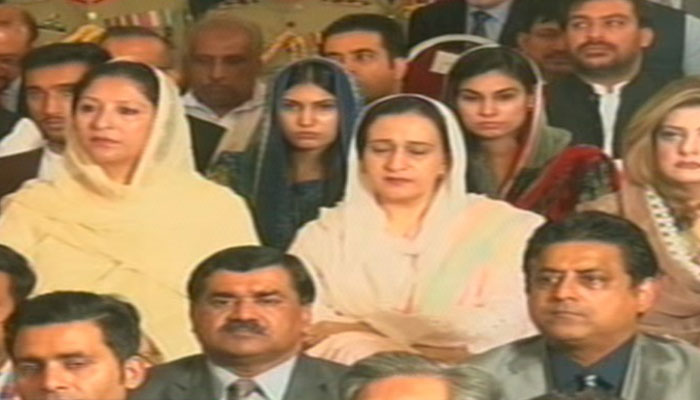Dr Arif Alvi sworn in as 13th President of Pakistan
September 09, 2018
ISLAMABAD: President Arif Alvi was sworn in at a ceremony in Islamabad on Sunday, concluding Pakistan’s peaceful transfer of power to the new government after a turbulent election campaign.
Arif Alvi, a close ally of Prime Minister Imran Khan and one of the founders of Pakistan Tehreek-e-Insaf (PTI) party, becomes Pakistan’s 13th president, replacing Mamnoon Hussain.
A guard of honour was also presented to the newly-sworn in President.
Chief of Army Staff General Qamar Javed Bajwa spoke at the president’s oath-taking ceremony, where he said that the ceremony is important for the continuation of democracy in the country.
The COAS said that democracy is strengthening in the country and it will become stronger in the upcoming days.
A vote this week saw Alvi getting elected by more than a thousand lawmakers from both houses of parliament and the four provincial assemblies.
Khan and his cabinet attended the ceremony led by Chief Justice Saqib Nisar, along with armed forces chiefs and senior Islamabad-based diplomats.
Alvi swore to "bear true faith and allegiance to Pakistan" and to carry out his duties "in the interest of the sovereignty, integrity, solidarity, well-being and prosperity of Pakistan."
A former dentist, Alvi has been a key confidante of Prime Minister Imran on both party and national issues.
He served as the PTI’s secretary general for eight years from 2006, and was elected an MP in the southern megacity of Karachi in 2013, winning re-election in the July vote.
A father of four and enthusiastic Twitter user, Alvi was shot and wounded during a protest against military dictator Ayub Khan in Lahore in 1969. He still has a bullet embedded in his right arm.
The election of the PTI marks the end of decades of rotating leadership between the ousted Pakistan Muslim League-Nawaz (PML-N) and the Pakistan Peoples Party (PPP), punctuated by periods of army rule.
But Khan and his cabinet face a myriad of challenges including a faltering economy, security challenges, water shortages, and a rapidly growing population negating growth in the developing country.
Pakistani presidents wielded greater power before 2008, when President Asif Ali Zardari, the husband of assassinated premier Benazir Bhutto, took office and devolved most of his powers to prime minister Yousaf Raza Gilani.

